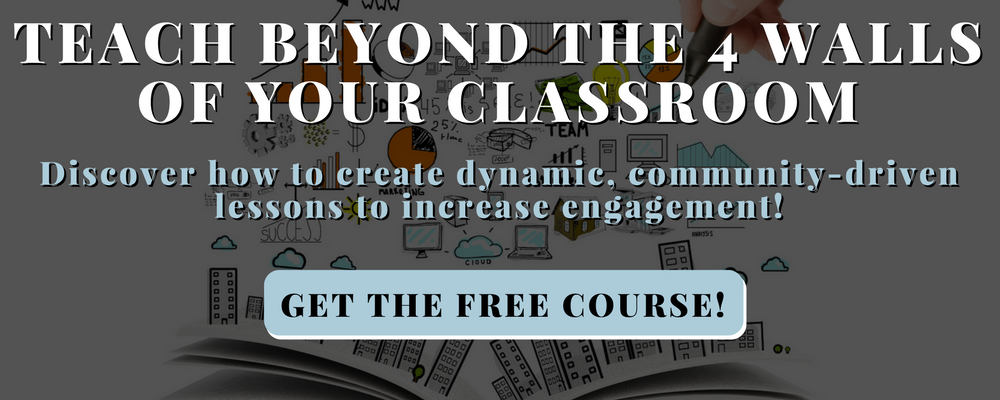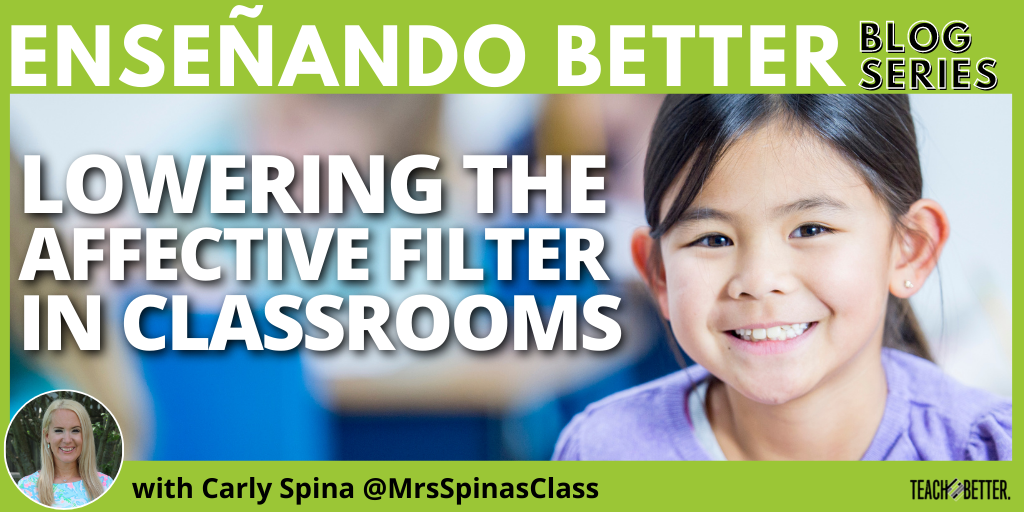TL;DR:
- The affective filter refers to an invisible filter we have—when high, no input can pass through and we can’t retain new information. When it’s low, input can freely pass and new learning can occur.
- Consider learning activities and tasks that lower the affective filter so that new learning can pass through.
I hate going to the post office. I never know what to say, what to ask for, or how to share what I need. And I feel like I somehow always “do it” wrong…and I’m not really sure why! All I know is, the post office stresses me out.
Do you have moments like this? Perhaps you avoid a certain task because it brings you some level of anxiety or stress. We all do! Our students do, too.
The affective filter is based on Stephen Krashen’s work.
He suggests that we all have this invisible filter around us. And when the filter is high, no input can pass through. This means that when we are engaged in high-stress or high-stakes activity, we cannot pass or retain new information (or new learning). However, when our filter is low, input can freely pass (and new learning can occur!). His work dates back to 1982, so this isn’t anything new—but it is incredibly relevant.
As we all seek ways to engage our students in new learning, we often talk about establishing and nurturing safe learning environments. It is paramount that we invest time and energy into establishing safe spaces.
Keep pushing yourself to consider learning activities and tasks that lower the affective filter so that new learning can pass through...and let’s watch our students shine! Click To TweetWe understand that safe spaces involve such things as affirming our students’ identities, nurturing trust, and building up confidence in those we serve. We tend to agree that students will not learn when they are afraid.
Building trust takes time and destroying trust only takes moments.
We can build trust by encouraging students to speak in the language of their choice. We can build trust by affirming language choices (“You broomed yesterday? How nice! You used a broom to sweep yesterday!”) instead of destroying trust by correcting every single piece of language offered (“We don’t say broomed. The word is SWEPT. You SWEPT yesterday.”). Language development should feel fun, free, playful, experimental, and stress-free. If I’m overly corrected with every word I say, I will feel much more stressed and I will likely not contribute much to conversations, because it doesn’t feel safe for me to do so.
We often overlook wait time. But this is one thing that we all can start doing right now. Ask students a question and let them know that you will not be calling on anyone for 60 seconds. Allow students to plan their answers by drawing, doodling, or writing.
Provide an additional 60 seconds for students to check-in with a partner and share their answers. Then, ask for volunteers to share. You will likely have many more hands in the air than if you had just asked a question and called for students to raise their hands if they knew the answer.
Providing students with the needed wait time to process, interpret, and plan their answer raises confidence.
Having that moment of oral rehearsal with a peer also provides them with quick, on-the-spot feedback in a low-stakes setting. After pairing students up in partners or in small groups, allow students to share either their answer or the answer of their classmate. This allows students to consider their own thinking and that of others. If they decide to change their answer based on new information, they may feel more confident. Provide sentence stems such as “I appreciated what Karla said when she mentioned ______” or “Joe shared with me that _____.” Not only does this build confidence for the speaker, but it builds up a community of learners who give each other shout-outs!
By employing technology tools such as Mentimeter or Answer Garden, we can have students engage in content anonymously. This can be really powerful. I personally love Answer Garden because it doesn’t require me to set up an account. I can post a question, provide a QR code or a number code, and students can contribute anonymously. Answers are displayed in real-time, so it also becomes an instant student-generated word bank!
Seeing answers pop up can either affirm students’ thinking (answers that are repeated will grow bigger!), or provide them with additional words to express their learning (this can also be helpful when learning synonyms, or if students struggle with spelling).
I love leaving the answer box up while switching to other activities in the lesson because now the activity has become a tool that students can go back and refer to as they transition to other tasks.
[scroll down to keep reading]
There are small moves that we can do each day in our classrooms that will help nurture a sense of safety, thus lowering the affective filter of our students.
There are likely many practices that you already do that develop and nurture a sense of trust, belonging, and community—hold on tight to those! Keep pushing yourself to consider learning activities and tasks that lower the affective filter so that new learning can pass through…and let’s watch our students shine!
About Carly Spina
Carly Spina has 15 years of experience in Multilingual Education, including her service as an EL teacher, a third-grade bilingual classroom teacher, and a district-wide EL/Bilingual/Dual Language Instructional Coach. She is currently serving educators and leaders across the state of Illinois in her role as an Education Specialist for the Illinois Resource Center. Spina has engaged in the successful co-creation of several parent outreach programs, tutoring programs for students in grades 3-5, mentoring programs for middle school students, co-teaching initiatives, and more. She is deeply passionate about equity and advocacy for multilingual learners and fights for access and inclusive opportunities for kids and families.
Spina actively fights against food insecurity in her community. She enjoys speaking at various national conferences and events and has received several awards over the years, including the Illinois Education Association Reg Weaver Human & Civil Rights Award in 2015 and the Distinguished Service Award for Excellence in the Team Category for EL Community Engagement in 2019. She was the WIDA Featured Educator in April 2019 and was named a Paul Harris Fellow in July of 2019. Spina is an active member of the EL/Bilingual community on social media and enjoys networking and growing with teachers and leaders across the country. She is currently working on her first book with EduMatch Publishing.



